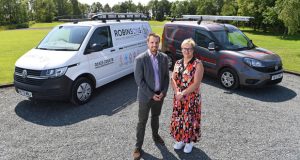Rethinking work in the face of enlightened automation was the theme of the Quora Smartworking Summit held in June at ExCel
There was a change of venue for the latest Quora Smartworking Summit, when the event decamped to the Platinum Suite at the ExCeL centre in conjunction with the Facilities Show. The high calibre of the speakers who take part under Chatham House rules was as high as ever; and included a government expert on AI, CEOs and directors from leading tech, legal and communications companies and the director of estates at a central government department.
The subject for debate was the impact of rapid technological advances in digitisation and analytics and their effect on the business landscape. One of the speakers remarked that for many organisations the issue is that they’re still applying practices developed in the physical world to the digital landscape. For instance, he pointed out, when the engineers who developed email adopted the phrase CC for copying someone into an email it was because it originally described the practice of using carbon paper to create a carbon copy ‘CC’ in a typewriter – something which would mystify anyone under 40.
There was also a reminder that the up and coming generation of workers are not millennials but their successors, Generation Z. This generation, born between 1995 – 2012 are very different in terms of their mindset and what they expect from work to the millennials, we were warned, which is why employers need to start factoring in their needs.
Probably the most alarming revelation from research into Gen Z is that 91 per cent of them say that a company’s technical innovation would influence their decision on whether or not to take a job. This means an organisation that fails to ensure they’re sufficiently sophisticated in terms of technology could miss out on this level of talent. However, at the same time, 84 per cent of this generation want to connect with their boss face-to-face, so it is a fallacy that future generations do not want human interaction. Employers need to explore ways that enable people to work remotely but also ensure there is a time and a place for workers to come together to connect.
John Blackwell, Managing Director, Quora was enthusiastic about having so many different age groups coming into the workplace. He said: “This gives us the great opportunity to have older people with diverse skills and experiences. We’re also lobbying hard for organisations to recruit older women into the workforce, because our research has shown that if we could get women into the workforce on a par with men that would add £600 billion per year to the UK GDP.”
TECH CHALLENGE
As technology continues to rapidly evolve, bringing new advances in robotics, analytics, artificial intelligence (AI), and especially machine learning, you might expect workers to be worried about the impact on their jobs, but the summit speakers felt there were many positive aspects, not least in freeing up people from mundane and repetitive actions to exploit their creativity and capacity for human innovation.
Said one speaker: “People worry about AI taking over jobs but I believe that the human condition is to create new work, and the creativity of humans to innovate is incredible.”
They added: “We must also remember that AI is only as good as the data you put in it, and an algorithm is only as good as a code, because if the data is even only slightly flawed you’ll end up with inaccurate results.”
The impact of digital disruption on working practices has already created a surge in the number of people working in the gig economy, which goes to show it was argued, that hiring people for full time jobs no longer works for societies, individuals or for companies. Whether you’re filling out of town buildings with staff to save on property costs or encouraging employees to work from home, keeping people motivated in either circumstance is not the answer for our economy. Instead, particularly in the tech and communications sectors, far-sighted organisations are; “hiring highly motivated people for specific projects who get paid very well and help businesses achieve breakthroughs in quick periods of time, which is what
we all need if we want to evolve our business models.”
Utilising data efficiently and for the right purpose is an important benefit of digital disruption. When applied to facilities management it can help FMs make better decisions and support their people more efficiently. But “to do that we need a clear asset hierarchy, with an end to end view linking building information modelling (BIM), Computer Aided Facilities Management (CAFM), and strategic asset management.”
Delegates were reminded that the right data can be extremely powerful in helping make evidence-based decisions. It provides access to high level information that enable FMs and property managers complete a business case and justify their spending, as well as avoid throwing good money after bad, for example when using access control data to identify real world occupancy.
FACELESS AND COLD TECHNOLOGY?
While it was agreed at the summit that automation and digital innovation can help set us free from some of the tyranny of routine that holds us back and give us some space to think, there was also a warning. The way we use technology must be closely monitored to ensure a moral compass is engaged when it is utilised, particularly with the use of big data in HR. Employers need to ask what kind of culture they are trying to build and do they live up to an organisation’s values, not from a management point of view but an emotional one?
“By focusing on people’s strengths you’ll get more passionate people doing what they want and doing it well,” the audience was reminded. For instance, why would you take someone with great creativity and try and make them a manager of a bureaucratic admin process?
Workers need to be offered the right tools to succeed and a workplace environment in which they can learn. Ultimately the summit speakers concluded, an organisation with ‘digital confidence’ has better tools to create a more inclusive culture that drives collaboration and ensures the benefits derived from innovation are realised by all.




